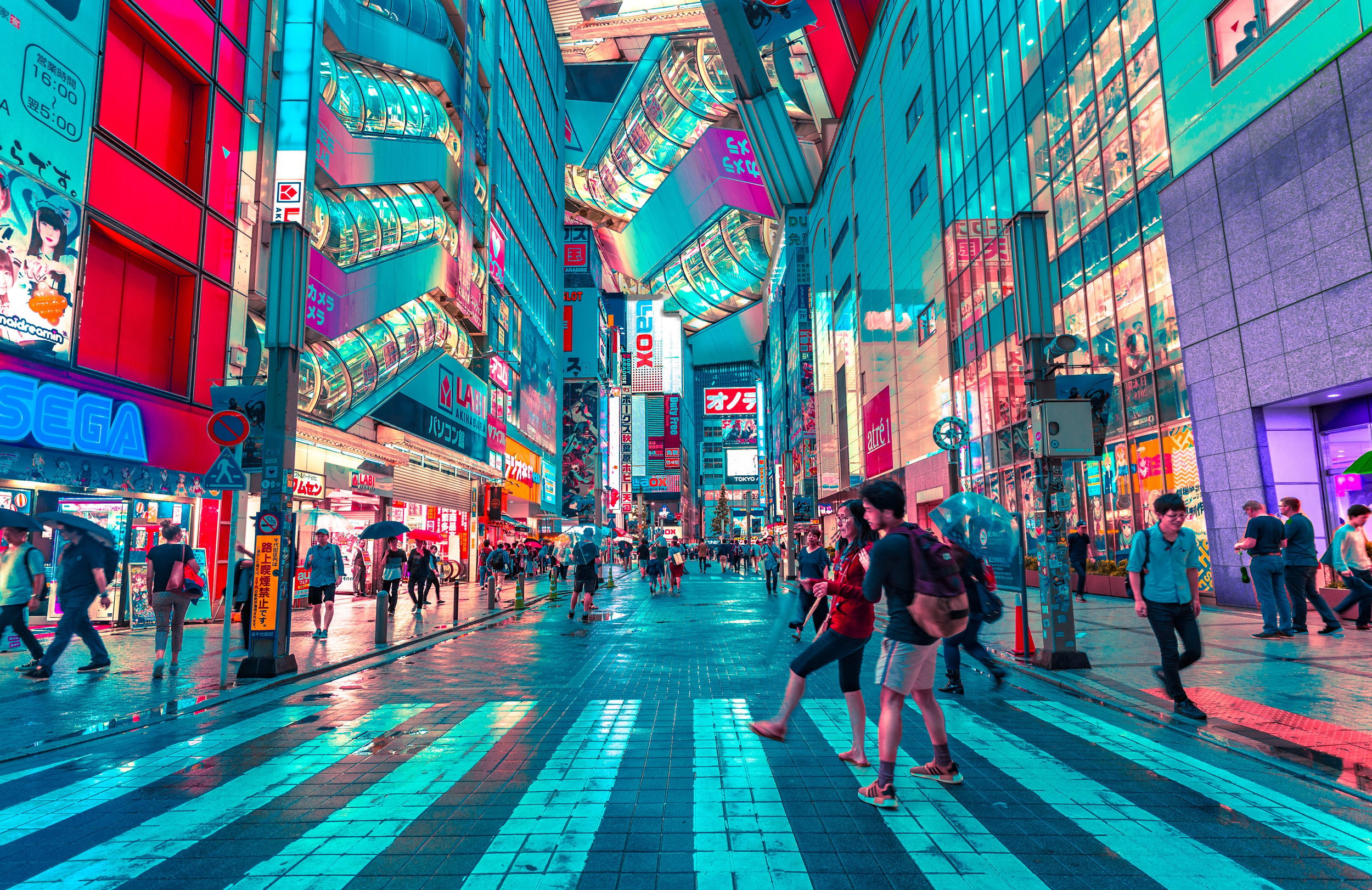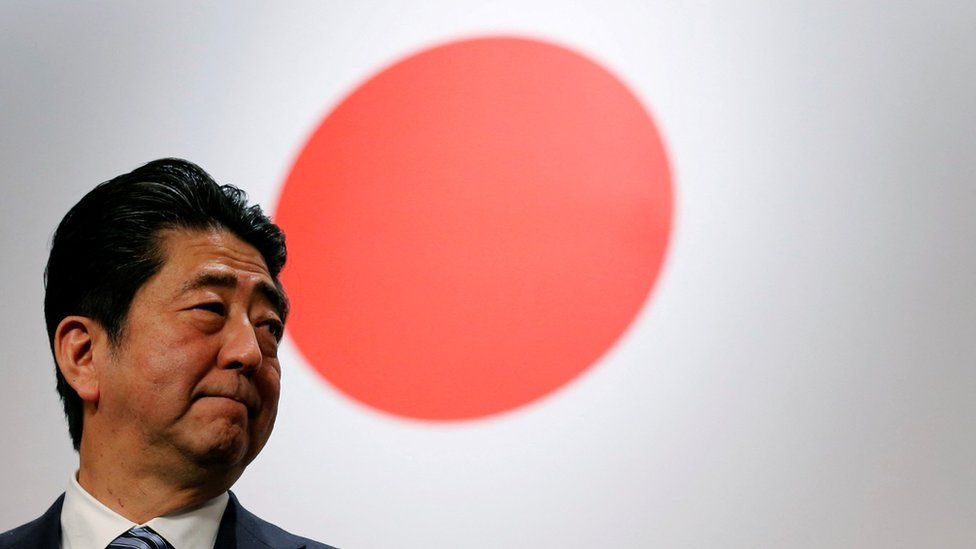Interview with Emma Ruiters
[Culture's meet to create new prospects in wisdom and understanding]
This week, "The Other Side with Sihle Sibeko" interviews Emma Ruiters, an MSc Japanese Studies candidate at Oxford University.
SS: Hey Emma, thank you for taking the time out of your schedule…
ER: No problem!
SS: So tell us a bit about Emma… Who is she? What does she do for a living? What do she enjoy?
ER: I am an economist who also loves art and writing. I have two master's degrees, an MSc from the University of Oxford in Japanese Studies and an MSc from SOAS, University of London in Development Economics. In both of my degrees, I focused on African development through different lens – Japanese investment, and industrial growth, respectively.
I am also the founder of the Japanese Language Club of South Africa (JLCSA) which has ~600 members across platforms, hosts events and gives lessons in Japanese for interested learners. I spend most of my time learning as much as I can about the economies and businesses in my favourite three regions: African countries, Japan and the UK. I write articles about my opinions on the growth and development of these places.
To relax, I can be found writing my fantasy novel, jogging or painting.

SS: You grew up in from South Africa, then moved to Japan, then London, back to South Africa, and now Oxford. How’s the “global-citizen journey” and what are some of the most important lessons you’ve gained?
ER: There are a lot of challenges to being a global citizen, having to say goodbye to new friends, keeping in contact with loved ones in different time zones and, of course, never feeling like you have a ‘home base’ for long. But I do believe the benefits are worth the pain. I have learnt a lot from my journey.
One thing I’ve learned, is that, despite what many in South Africa think, South Africa is quite an insular country. We tend to rely on old and tired explanations for our problems that we haven’t interrogated enough. And despite our ostensible diversity, we often aren’t curious enough about other cultures beyond the superficial differences. I believe that being given the opportunity to live in vastly different countries, societies and cultures has given me a brand-new perspective that has shed light on problems in South Africa, and new potential solutions. This requires observation and curiosity.
An example might be after living in Tokyo, I returned to Johannesburg and wondered why Johannesburg has never really developed a cycling culture. It is a cheap and healthy way to travel, moreover, bicycles might be a good easy industry to establish to create new jobs which are dearly needed in South Africa. I then did research and discovered that Johannesburg did used to have a strong cycling culture, but it was crushed by the Apartheid government in the 1950 and 1960s through the Group Areas Act. This encouraged me to try to understand more how the Group Areas Act has negatively impacted the economy of South Africa through mobility and logistics, productivity and inefficient urban development. These effects persist to this day, as they have introduced permanent high costs to private citizens (and thus to the economy) due to the far-flung distances that most people in South Africa must travel to economic areas.
SS: How’s the experience of studying in the UK’s/world’s most prestigious institutions (SOAS, University of London & Oxford University)?
ER: Studying at SOAS and Oxford have been two of the most rewarding experiences of my life. There is nothing comparable to the exposure to new people and ways of thinking that university can provide. I have met some amazing people who have shaped my ideas about the world and provided me perspectives and skills I could never have encountered on my own.
However, that is not to say that spaces such as Oxford or SOAS are the only places to learn things. I think it is important to keep speaking to people from all walks of life, industries and backgrounds because global universities can become bubbles of thinking. More than that, nothing is comparable to real experience on the ground.
I also want to mention that I studied at the University of Cape Town in South Africa and my experience there was favourably comparable to UK universities, with some incredible lecturers and teaching. I believe strongly that South Africa has globally competitive offerings for education and thought.
SS: Do you ever see yourself settling down in one country? If so, which country and why?
ER: I feel my ideal would be being able to move freely between Japan, South Africa and the UK. These are the places that I feel most comfortable and at peace. I have an intense emotional and cultural connection to each of these places.
SS: What interested you in the study of development economics?
ER: I have always been a passionate South African who wanted to solve the problems of inequality and poverty that continue to plague our beloved country. I studied economic history and learned about the Japanese Economic Miracle where Japan rapidly became a developed country but succeeded in doing so without creating inequality. This was achieved by a symbiotic relationship between the public and private sector, through a clear industrial policy agenda. I believed that by learning more about Japan’s amazing culture I might learn some lessons about how to recreate their success in South Africa. From doing economic history, I decided to broaden my skillset to include quantitative analysis and so I studied Development Economics focusing on innovation, industrial policy and growth.

SS: From your experience, what are some of the foundational pillars an economy needs to optimize the productivity of a nation to be a high-performer?
ER: I think there are some critical elements that an economy needs but I absolutely do not think that there are one-size fits all solutions to economic development. The history of a country is critical, the culture of its people and timing is all a part of economic development. Some critical components I do believe are a process of urbanization which should be based on careful land reform that ensures that productive activities are prioritized as well as equitable distribution – this has been the case in almost all successful developers – South Africa has not quite managed this and requires a well- coordinated and well-managed intervention here. The next critical component is education and skills, or in other words, high quality human capital (a term that can be problematic) but having people who are well-educated, curious, entrepreneurial but ultimately happy and healthy are critical things to growing a prosperous society. Finally, I believe that both the public and private sector should work together to facilitate sustainable growth. Often the private sector is neglected in the African context, because commentators may wish to emphasize their own solutions to African problems through, for example, foreign aid, but there must be domestic solutions to the problems that face African countries, as only we can solve our own problems, I believe. Governments should provide leadership and support to businesses and should also be agenda setters as they have a unique social contract and mandate to the people who elect them.
SS: Japan grew to become the second biggest economy in the world, then its economy stagnated from 1986 – 1991, and it has since struggled to keep pace with America and China. From Japan’s journey, and considering the current South African economic climate, what are recommendations / reforms South Africa must implement to build a renewed and empowered economy?
ER: Many parts of Japan were nearly razed during World War II and the country embarked on an impressive mission to develop. I was struck, while reading the Pulitzer-prize winning book called Embracing Defeat by John Dower, by the challenges that Japan experienced in the immediate post-war period, from widespread crime and unbelievable corruption. This is far from the image that Japan represents today, as one of the countries with the least crime and best managed government. This inspires me, as despite South Africa’s problems that we face today, that it is entirely possible with the right leadership to become a Japan. Ultimately, South Africa needs to focus on its deeply broken labour market and societal renewal.
SS: Japan is one of the largest Asian investors into Africa. Under Former Prime Minister Shinzo Abe’s administration, Japan pledged $20 Billion in foreign direct investment to Africa – from your experience, how can one place themselves in a position to take advantage of Africa-Japan relations?
ER: Japanese culture is critical to understand to build trust. There is an opportunity for us Africans to take advantage of a cash-rich society that is currently experiencing an aging and declining population. African countries have the youngest population and least capital. There is clearly a synergetic opportunity here, but so few people are reaching out to the Japanese market and saying, ‘Hey look here, we are open to collaboration, we have amazing opportunities!’
SS: Speaking of Mr. Shinzo Abe (RIP) what are your thoughts on the terrible incident that befell him?
ER: It is a tragedy that former Prime Minister Abe was cruelly gunned down while he was giving a stump speech by a deeply misguided individual. He was Japan’s most influential politician since World War II, if not the most influential politician in Japanese modern history. This is not just because of his Abenomics reforms which saw record numbers of women join the economy (at present more Japanese women are part of the work force than in the US, while simultaneously, there remains a lack of women in management and senior positions); have positioned Japan as the Asian country with the highest birth rate (which remains low at 1%); it is also because of his positioning of Japan as a globally influential power through initiatives like TICAD in Africa, the ABE scholarship programme, and other security initiatives in the Pacific Region such as Quad. While, for many, his legacy will be a mixed one and controversial especially given his incremental reforms to Article 9 of the Japanese economy that have allowed Japan to virtually have a standing army (something that was not the case since the post-war Yoshida doctrine), which has moved Japan away from its modern identity as the ‘Heiwa na Kuni’ or Peaceful Country. Moreover, Japan has not apologized for its actions in Korea and China during World War II, a legacy that Shinzo Abe did not address and in some cases worsened relations between these countries. No doubt, history will reveal whether Abe’s moves were the right ones for Japan, as it deals with rising tensions in the region, and global instability given the shifts in power between the USA, its traditional ally, and China, its neighbour.

SS: Back to lighter things – what are three things you miss about South Africa?
ER: I miss a lot of things about home. My family in Cape Town. The rhythm and energy in how we South Africans communicate (as I need to speak differently to be understood well by international people). I also miss the delicious, fresh food – it is not possible to find such delicious food overseas (particularly in the UK) in my opinion.
SS: We’re a new blog with some avid readers, whilst growing the reader-base. What is one thing you would like to wish our readers?
ER: Be curious about the world and don’t shy away from looking at unique, sometimes obscure connections. They might be just as rewarding as those that are obvious.
Connect with Emma Ruiters on LinkedIn: https://www.linkedin.com/in/emma-ruiters-916a2a141/
Siyabonga!
This week's affirmation: I am consistently growing into the best version of me!
This week's vibe: https://music.apple.com/us/song/1616239207 | https://open.spotify.com/track/32EOILWXWu3WGo56PmM9UG | https://www.youtube.com/watch?v=ODfyYkpLXVw - Mama by Nduduzo Makhathini feat Omagugu
